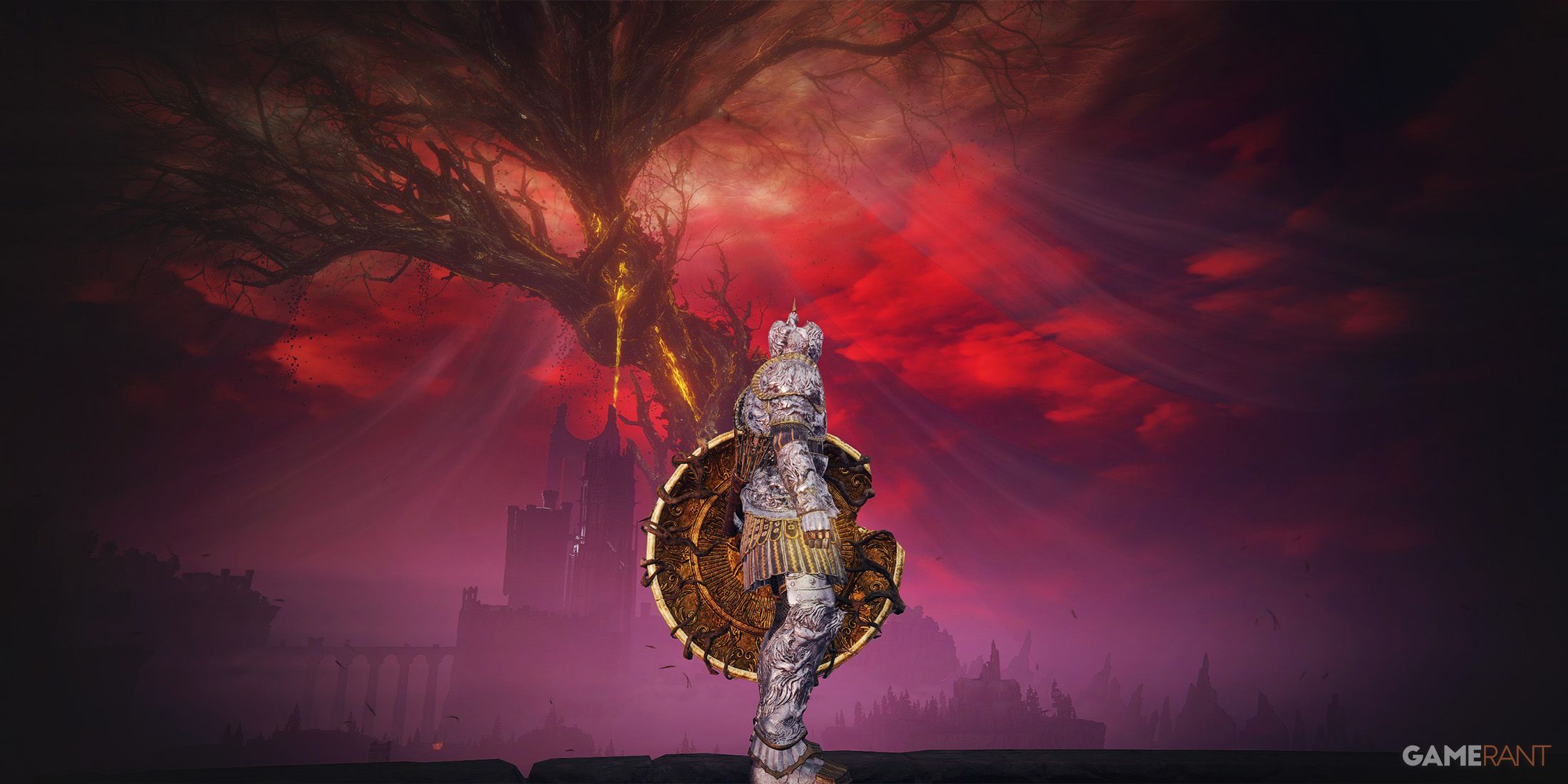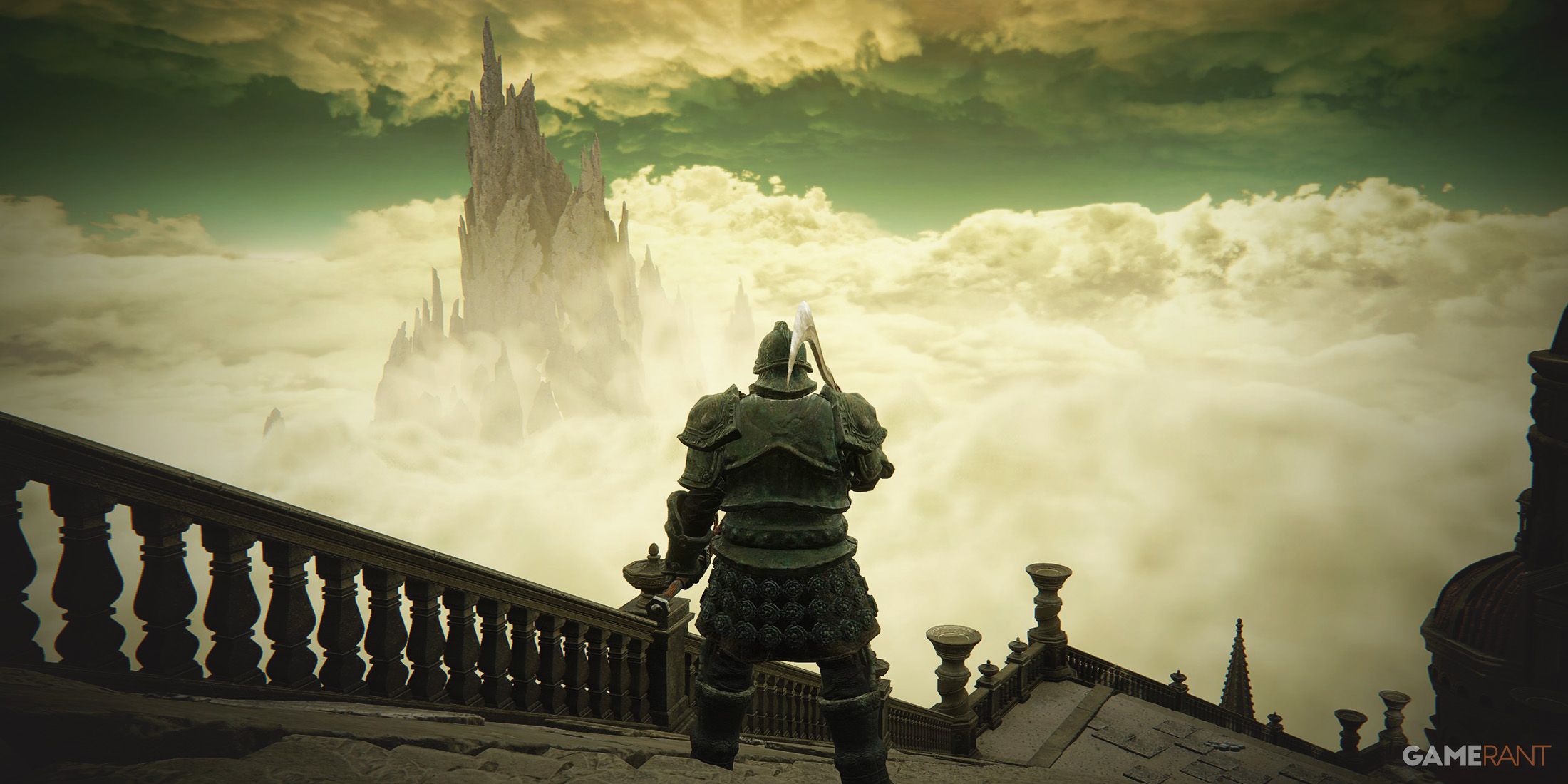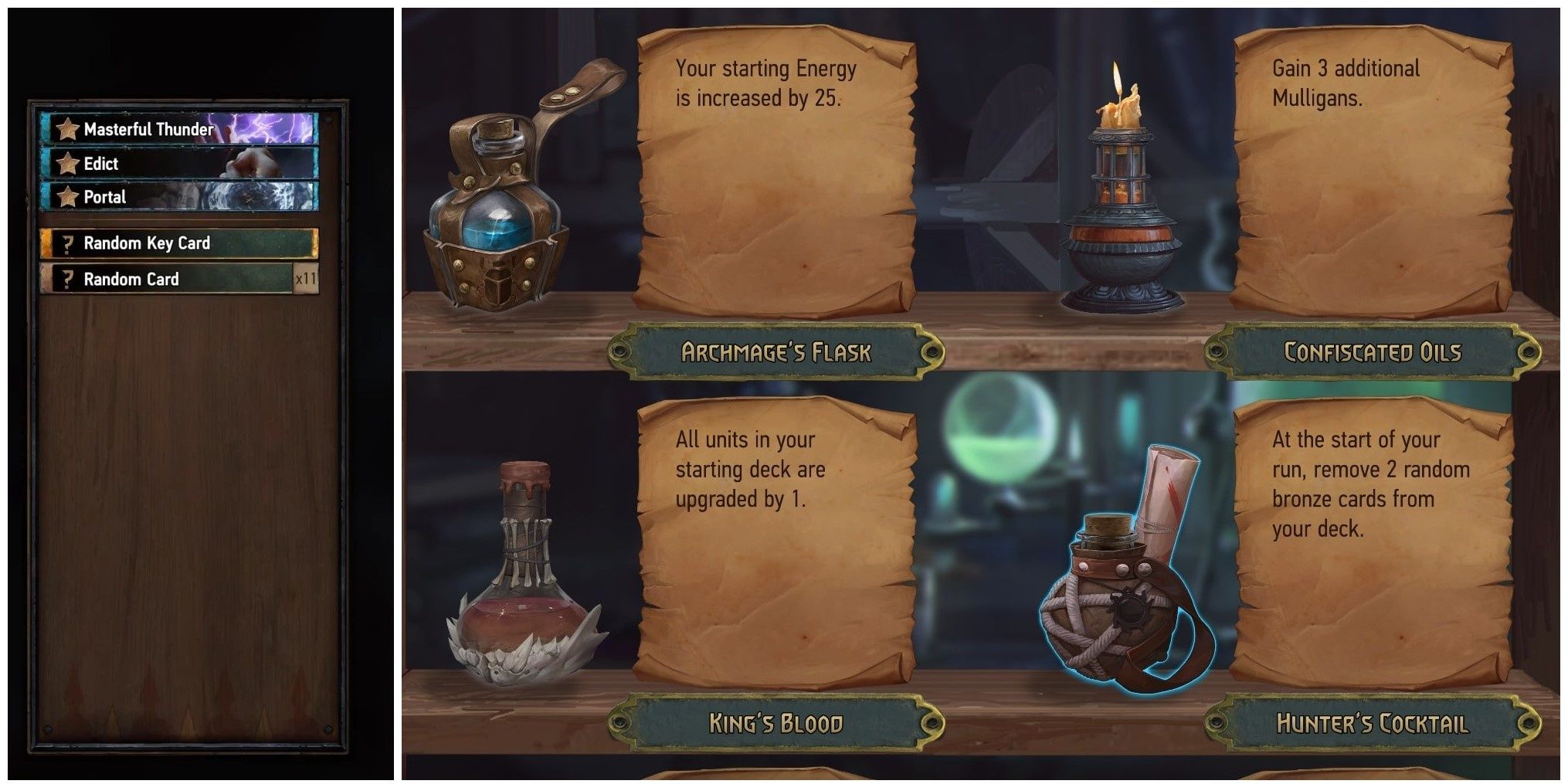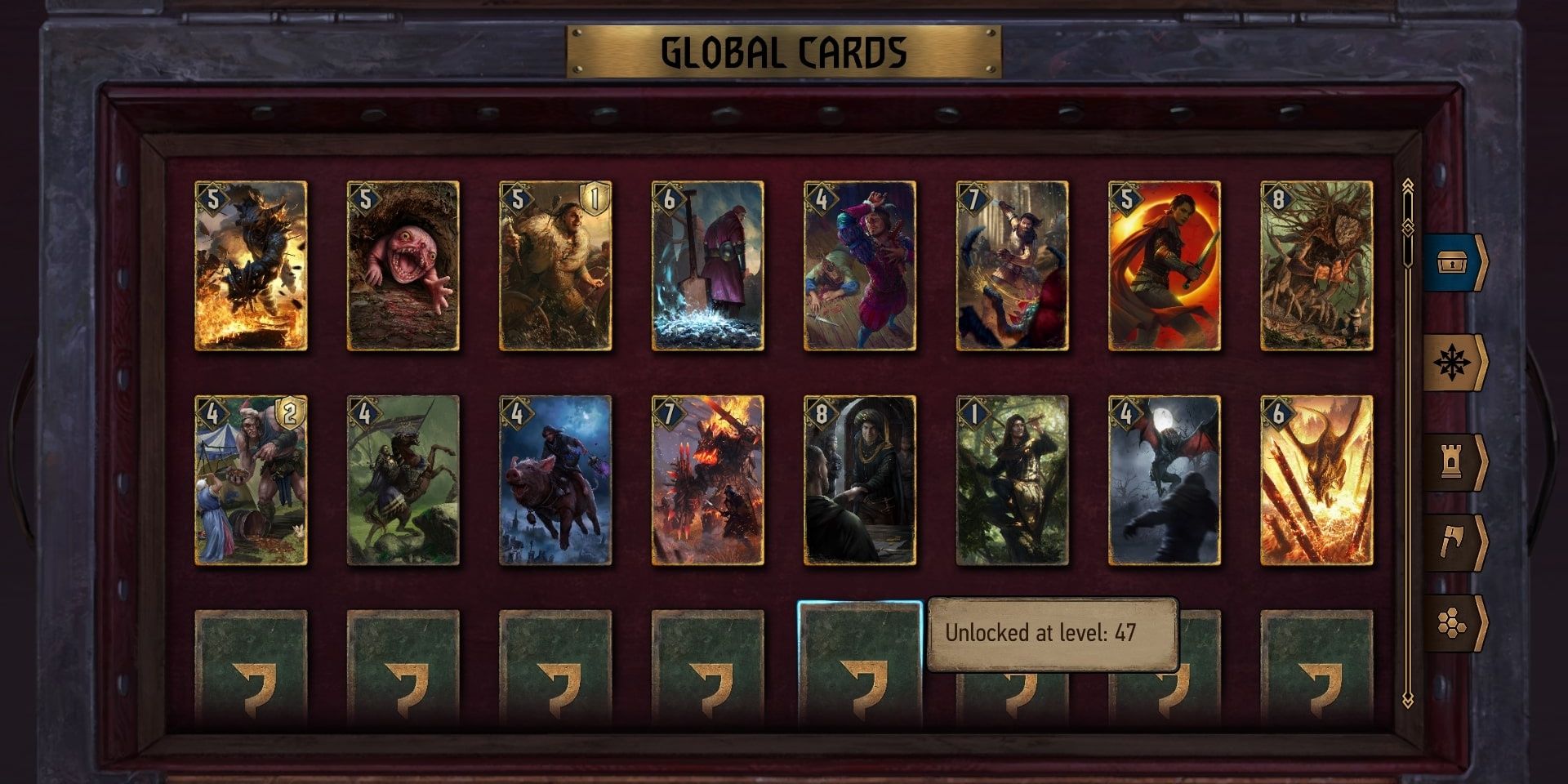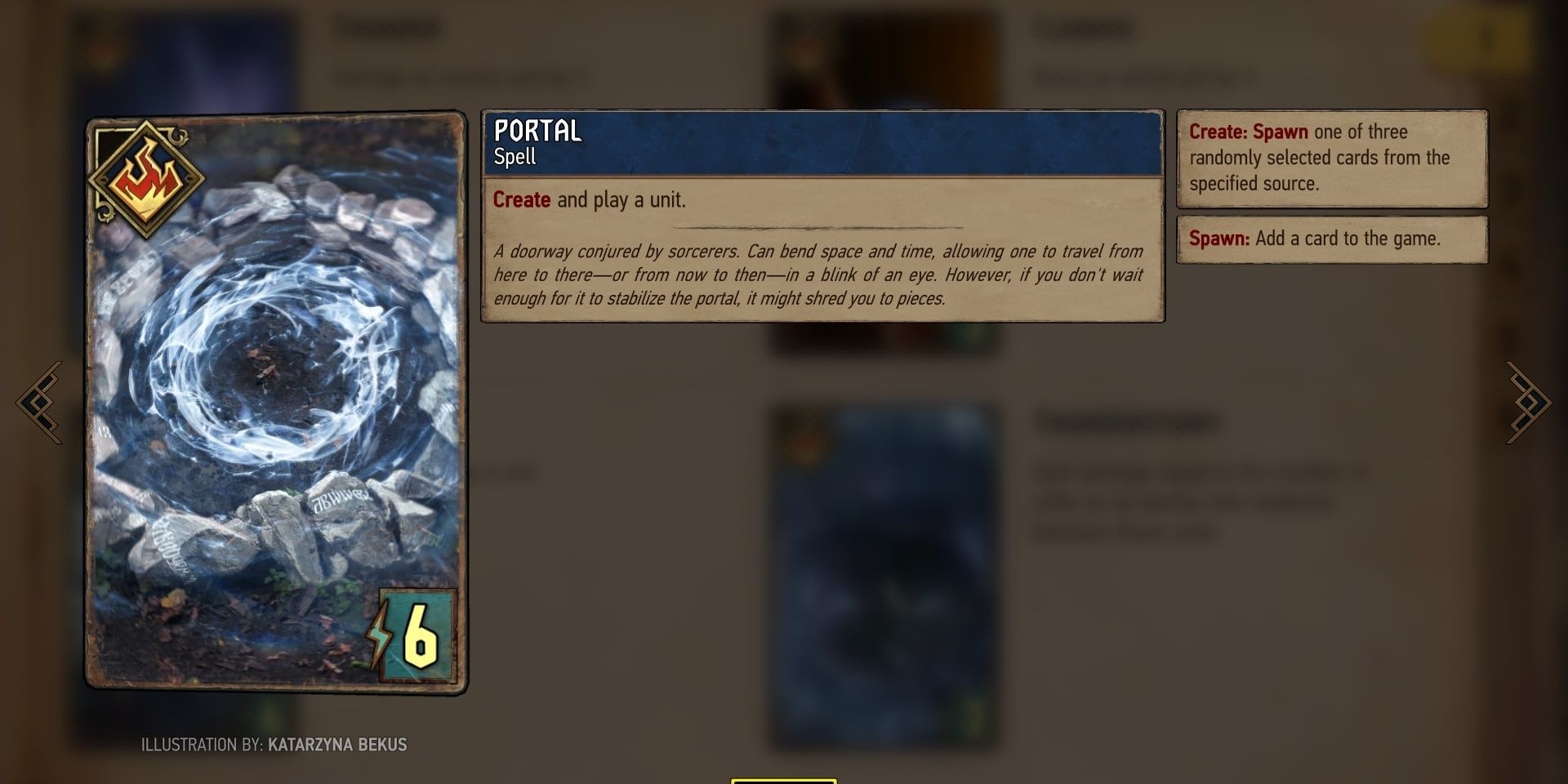Gwent: Rogue Mage is a highly randomized version of Gwent, with encounters, battles, and loot all determined by RNG, in a typical rogue-like fashion. Battle opponents are selected from a couple dozen potential enemies, and reinforcement cards are drawn from a massive pool of possible cards. This adds a massive amount of variety to the game, with each run being uniquely different from the last.
With such a chaotic, random game experience at its core, it only seems fitting that CD Projekt Red has leaned into the turmoil and added its very own chaos deck to the game. This deck, unlike the three other deck options, is completely randomized - that means every card in the deck is randomly generated at the beginning of a run. Players may understandably feel apprehensive about such uncertainty - this guide explains how to master that uncertainty and ensure the best chance of defeating the final boss.
The Basics Of The Chaos Deck
The Chaos deck is rather unique in Rogue Mage – while the other three decks have players choose from one of three key cards, and the rest of the deck is pre-determined for them, the Chaos roster takes an entirely different approach. Instead, both the key card and the rest of the deck are entirely random. That means players can and will get any old combination of cards, and there’s no guarantee that their starting roster will synergize with each other. In fact, they may directly counter each other’s abilities.
Thus, the most important skill needed to run the Chaos deck is the ability to adapt to different strategies. Players will only unlock the deck at level 45, so will likely have a good understanding of the game and have some valuable experience in using various different cards. They will need to put this knowledge to good use and improvise with whatever cards they are given at the start of the game to stand any chance of surviving the first few encounters. There’s often some kind of helpful combo or synergy hidden within the deck – players just have to look for it.
Of course, many runs are going to burden the player with useless cards that either don’t fit with the strategy they wish to take or are just plain bad. These cards should be removed from the deck as soon as possible, either from the aftermath of a Battle, a Place of Power, or an Event. It’s also critical to pick up new cards and evolve the deck’s strategy, but that may take a backseat if the player has a few stinkers in their starting deck.
Important Cards And Strategy
There are no set cards in the Chaos deck, and the player’s strategy will be different in every run, but there are a few universal tips that will generally serve them well. The key card is usually one of the most powerful in the deck, and it cannot be changed or removed in any way. That means players are stuck with it for the entire run – hence, it's usually best to find a way to evolve the deck around it rather than ignore it entirely or play it for underwhelming value.
One of the few factors that players can control in the Chaos deck is the spells and potions they bring along with them. These can add a small measure of consistency to a deck that has almost none at all and should be considered very carefully before starting a Chaos run. It’s even more important as players are often forced to spend energy early on to prevent defeat at the hands of a more coordinated deck.
It might be beneficial to bring the Archmage’s Flask along for the extra energy, or possibly King’s Blood for the universal buff. If not, the extra spell from Glacial Decanter is also a solid choice, and Hellfire Essence if players want to go all in on the chaos. Other potions are viable too – it's largely down to personal choice.
As for spells, there are several that help to add some consistency and utility to the deck. Visions allows the player to play any card from their deck, which can be a blessing in tight situations where the right card can make all the difference. Portal is also a good choice, allowing the player to look for some utility cards they might not have been lucky enough to get in their starting deck. Finally, Thunder is always a strong choice for the added removal.
Gwent: Rogue Mage is available for PC, Android, and iOS.

